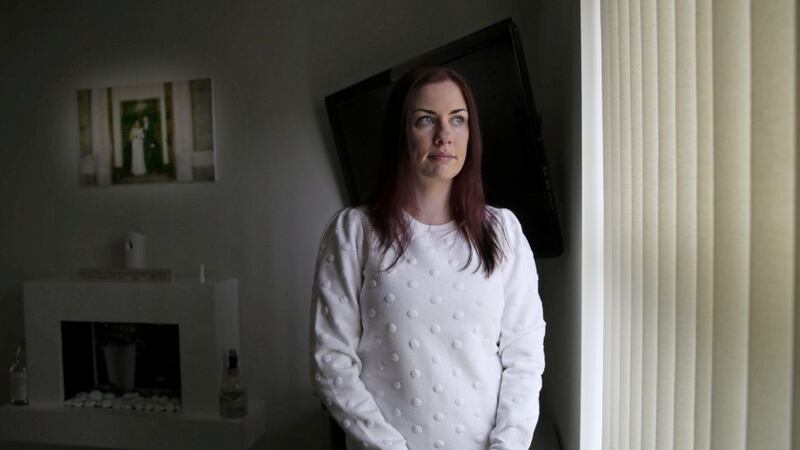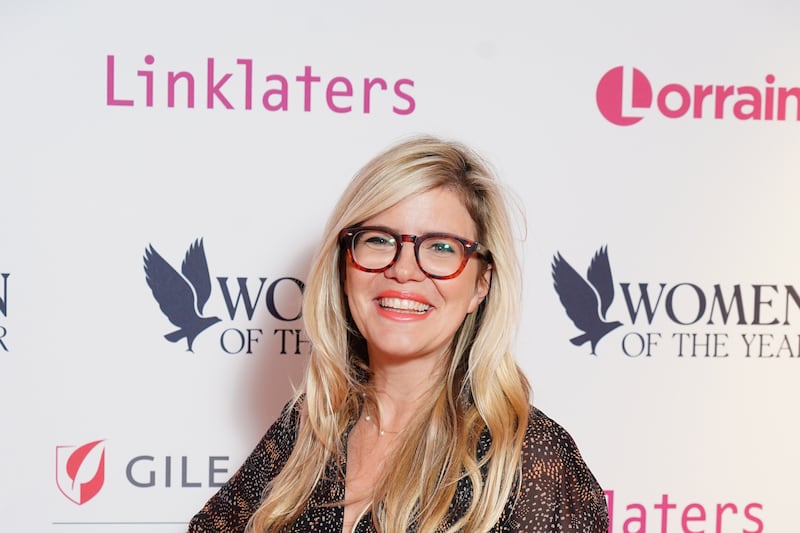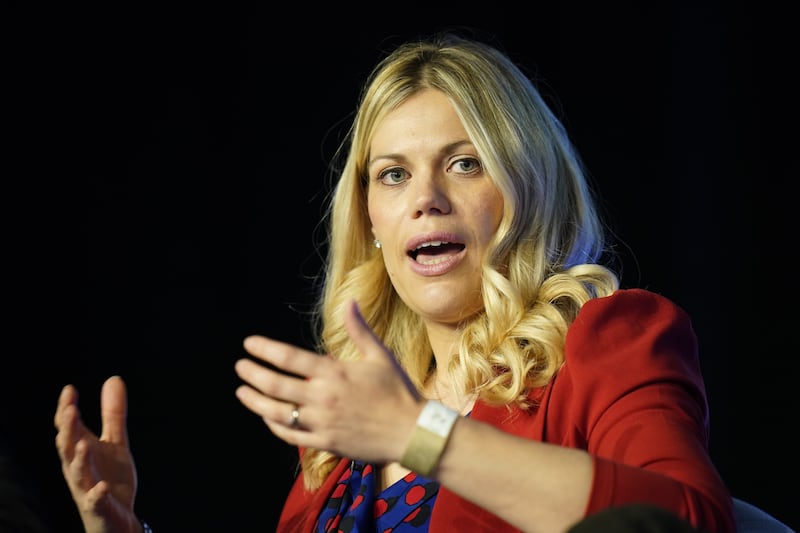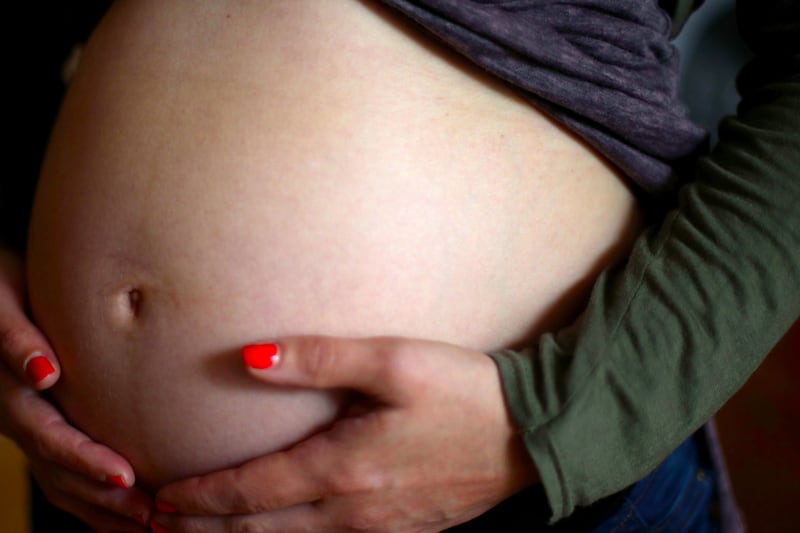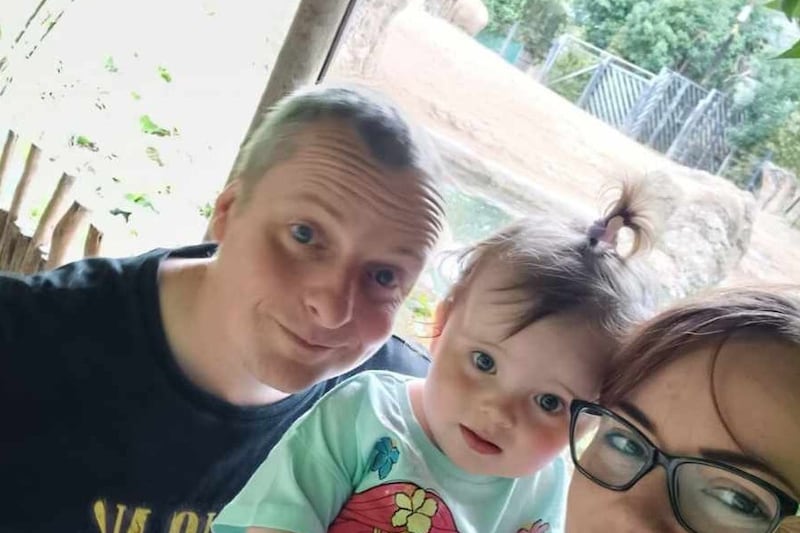FOR Antrim woman Susan Alden, whose IVF treatment has been delayed by Covid-19, it’s the waiting that is hardest and knowing that time is not on her side.
Susan, who turns 38 next month, is one of a number of women in Northern Ireland who have had to put their hopes and dreams of becoming a mother on hold.
The Regional Fertility Centre at the Royal Victoria Hospital has suspended most of its services because of the pandemic, and although it resumed frozen embryo transfers last week, for women like Susan who were so close to starting their first IVF treatment the agony and uncertainty goes on.
Earlier this month, support group Fairness IN Fertility met members of the Stormont health committee to talk about the psychological impact and distress the continued postponement is causing.
Chairman Colm Gildernew has passed on the group’s concerns to Health Minister Robin Swann and Chief Medical Officer Dr Michael McBride.
And interim mental health champion Professor Siobhan O’Neill has also called for ministers to prioritise fertility services as we exit lockdown, describing them as “time critical” and adding that delays can have “life-changing, heartbreaking implications”.
“Heartbreaking” is the word Susan uses over and over to describe her feelings. She and husband Alan have been trying unsuccessfully to have a much-wanted baby since they married in 2017.
The couple were told IVF was their only option after Susan underwent an operation in January 2019 for suspected endometriosis, only for surgeons to find a cyst the size of a grapefruit in one of her fallopian tubes.
She says: “I didn’t care about scars from the operation, or being in hospital – the only thing I cared about was the ink test which tells if your fallopian tubes are clear. But instead, they told me I couldn’t have a baby naturally.”
The couple’s initial shock was partly allayed when they were told that Susan would be referred quickly because of her age and, having seen a consultant in August 2019, they were told she would have a review appointment in six weeks.
However, when they didn’t hear anything, they paid to go privately in January 2020 and were put on a list for IVF treatment.
“About six weeks later, on February 29, we got our letter to say we were at the top of the list, which was amazing,” she says. “We were thinking ‘happy days, this is brilliant’. Then Covid hit and everything was stopped.”
The couple’s hopes were dashed a second time just two months ago.
“I came home one day and it was our offer letter of treatment,” explains Susan. “I was in the house on my own and I was so excited I was shaking. I phoned the Royal to make sure it was really happening.”
Three days later, the centre was closed due to coronavirus for what was meant to be four weeks, but services haven’t resumed fully since.
The couple also suffered a further setback last October when, in desperation, they decided to go to a private clinic in Harley Street in London where Susan was told she had a cyst on her ovary.
"I was told that if I wanted to have IVF privately, I would need a further scan in three months to see if my cyst had decreased. If not, then it may need to be removed. By removing the cyst, it would also take away half of my ovary,” she explains.
“We would love a couple of children,” adds Susan, who comes from a close-knit family and has five nieces and nephews whom she “adores”.
“What I don’t understand is that hospitals and health centres are open so why can’t the fertility centre open? I am getting older and I may not be able to have children for much longer because my egg reserves will be going down.
“Waiting is absolutely horrendous. I am constantly checking my emails and waiting for the postman to see if there is anything from the Royal. And with lockdown, so many people have announced they are pregnant. I don’t think people understand how heartbreaking it is. The thing I want most in the whole world is a family.
“When women talk about a baby not being planned, I am pulling my hair out thinking, ‘I would do anything to be in your position, to have a beautiful baby’.”
It’s a longing known only too well by Derry woman Deborah Cross and husband Stephen.
Deborah (44) founded Fairness IN Fertility around five years ago to campaign for local couples to be given three free IVF sessions, in line with the National Institute for Health and Care Excellence (NICE) guidelines.
Currently, they are only entitled to one free cycle while couples in Scotland get three and in Wales it is two. In England the number varies.
Deborah is concerned that, even when all services resume after lockdown, there will be a backlog and the centre will be working at reduced capacity.
“There is the question around why they can’t outsource this to the private sector. It continues to see patients and to provide frozen and fresh cycles,” she says. “There are opportunities to get the waiting list moving and get people seen in a manner that is timely.
“When you see the distress that is being experienced by couples across Northern Ireland, it’s quite saddening that all options are not being fully considered.”
Deborah has had seven cycles of IVF treatment, the last one in October, and is planning to have another, using her frozen embryos.
She and her husband have been trying to have a child through IVF since 2010 and have spent thousands of pounds on private treatment.
Although Deborah did conceive during one of the cycles, the couple were devastated to lose the baby at 12 weeks.
She is also continuing to lobby the Northern Ireland Executive on a commitment they made in January 2020 to fund three cycles of IVF, following a petition signed by 10,000 people.
“There needs to be progress to see that commitment honoured,” she adds. “It’s not for me. There are young women coming up. It could be potentially life-changing for them so we need to make sure the executive keep their word.”
She has also questioned the ethics of the current system here, which entitles couples one frozen embryo transfer along with the fresh cycle.
“If you have a number of embryos, you have to pay for the other frozen embryo transfers, which poses a bit of an ethical dilemma,” she explains. “They have allowed you the opportunity to create these embryos but what about those couples who are not in a position financially to pay for the remaining transfers?”
Like Deborah, Susan remains hopeful that she and her husband will eventually get to hold the baby they long for.
“I am going into this believing it will work and Alan is very positive and supportive. In our hearts, it is going to work. We just hope and pray it will happen soon.”
A spokesperson for Belfast Health Trust said the pause in services is “regrettable” and that all staff will return to the Regional Fertility Centre as soon as possible to allow services to resume.
